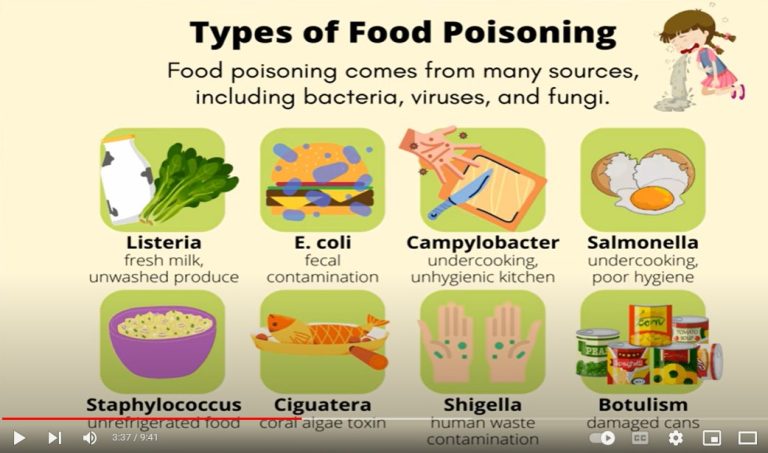Altiplano Design Insights
Exploring the beauty and creativity of design in everyday life.
Food Poisoning Follies: Tales of Culinary Catastrophes
Discover hilarious and alarming food poisoning stories that serve up cautionary tales from the kitchen—prepare to be entertained and educated!
Top 5 Common Foodborne Illnesses and How to Avoid Them
Foodborne illnesses are a significant public health concern, impacting millions of people each year. Understanding the top 5 common foodborne illnesses and knowing how to prevent them can help keep you and your family safe. The most common foodborne pathogens include Salmonella, Escherichia coli (E. coli), Listeria monocytogenes, Norovirus, and Campylobacter. Each of these organisms can cause severe illness and, in some cases, can be life-threatening if not handled properly.
To avoid contracting these illnesses, it’s essential to practice proper food handling and hygiene. Here are some effective prevention tips:
- Wash your hands thoroughly before cooking and after handling raw foods.
- Cook foods to the recommended temperatures to kill harmful bacteria.
- Avoid cross-contamination by using separate cutting boards for raw meats and vegetables.
- Refrigerate leftovers promptly and ensure your fridge is set at 40°F (4°C) or below.
- Stay informed about food recalls and safety alerts.
By following these guidelines, you can significantly reduce your risk of contracting foodborne illnesses.

What to Do If You Suspect Food Poisoning: A Step-by-Step Guide
If you suspect food poisoning, the first step is to assess your symptoms. Common signs include nausea, vomiting, diarrhea, abdominal cramps, and fever. These symptoms can range from mild to severe, and it's crucial to monitor their progression. If you experience severe symptoms such as high fever, prolonged vomiting, or signs of dehydration like dizziness and dry mouth, seek medical attention immediately. Remember, early intervention can significantly impact recovery times and prevent complications.
Once you've identified potential food poisoning, stay hydrated by sipping clear fluids such as water, broth, or oral rehydration solutions. Avoid solid foods until your stomach settles; when you feel ready, start with bland foods like toast or bananas. Additionally, it’s wise to keep a record of what you ate before symptoms began, as this information can help healthcare professionals identify the source of the problem. If symptoms persist beyond 48 hours or worsen, consult a healthcare provider for further evaluation and treatment options.
Culinary Catastrophes: Real Stories of Food Poisoning Gone Wrong
In the world of culinary disasters, few stories resonate as profoundly as those involving food poisoning. From family gatherings gone awry to restaurant outings that turn into nightmares, these incidents serve as a stark reminder of the importance of food safety. One infamous case involved a popular seafood restaurant where over fifty diners fell ill after consuming improperly stored shellfish. The affected individuals reported symptoms ranging from severe nausea to life-threatening dehydration, leading to multiple hospitalizations and a subsequent lawsuit. This horrifying event not only tarnished the restaurant's reputation but also sparked a widespread discussion on food inspection practices.
Another gripping tale unfolds in the tale of a high-profile wedding reception that ended in chaos when guests began experiencing acute food poisoning symptoms shortly after the meal was served. As the joyous occasion descended into a frenzy of upset stomachs and frantic calls for help, it became clear that the caterers had mishandled the food preparation. The bride and groom were left devastated, not only by the disruption of their special day but also by the looming threat of legal action from their guests. This incident highlights the critical need for vigilance in food handling and preparation, reminding us that a moment's negligence in the kitchen can spiral into a culinary catastrophe.